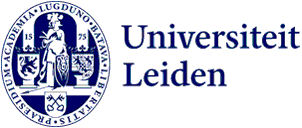
Executive Board column: Why our collaboration with Indonesia is so important
This month, I and a group of enthusiastic researchers went on a knowledge mission to Indonesia, visiting different universities and other knowledge institutions. We renewed old contacts, made new friendships and exchanged important knowledge
In this column Annetje Ottow, Hester Bijl and Martijn Ridderbos give a peek behind the scenes at the Executive Board of Leiden University. What does their work involve? What sparks their enthusiasm? What challenges do they face? Building on a healthy, engaged and learning community begins with sharing what you are up to. This time it’s the turn of Annetje Ottow.
Indonesia is currently investing heavily in education and research. The country has big ambitions for the future and is fervently making up for lost time. Right now, Indonesian universities are looking for cooperation partners, so it is important for us to re-establish our ties with them now, after the covid period. It is important for me to stress here that the exchange of knowledge with Indonesia works in both directions. It cannot be denied that the relationship between the Netherlands and Indonesia originally had its basis in colonialism, but that relationship has since become much more equal. Today, Indonesia is a true partner in the field of higher education and scientific research. Different perspectives on scientific and societal issues often yield better results, with an impact that can be felt in both countries.
‘Different perspectives on scientific and societal issues often yield better results, with an impact that can be felt in both countries.’
Global problems
This trip made it clear to me that international collaboration is a must if you are looking for solutions to global problems like climate change and pandemics. Or, as one of our researchers put it so well: ‘Big challenges ask for big collaborations’. We partner with Indonesia across a broad range of areas, ranging from the economy, health, history, colonisation and decolonisation, the environment, biodiversity, water and waste, to AI and information technology, Islam studies and human and other fundamental rights.
Before travelling to Indonesia, I signed a collaboration agreement in Manilla with the Asian Development Bank (ADB). This new collaboration is in line with our ambition to create a worldwide impact. We are the first European university to make a long-term commitment to this development bank, whose aim is to reduce poverty and improve quality of life. The bank is increasingly developing as a climate bank, financing solutions that make societies resilient to climate change. As a university, we will apply our interdisciplinary knowledge in urbanisation, the circular economy, water, biodiversity and tax reform. One of the decisive factors for the partnership is our alliance with Erasmus University and Delft University of Technology: this shows clearly how regional alliances can lead to international collaboration.
Young researchers
During the knowledge mission, I witnessed tremendous enthusiasm about the collaboration, among both the Leiden researchers and our Indonesian colleagues. The members of the delegation were not only deans and professors but also young researchers. This helps us lay the foundation for an enduring relationship that will remain strong well into the future, and with which we can break new ground. Connection was the central theme during this knowledge mission to Indonesia: connection with our Indonesian knowledge partners, but also connection among different Leiden disciplines. This is why I am so happy that the mission to Indonesia was undertaken by a university-wide delegation; interdisciplinarity generates many new insights.
It is quite exceptional that we have so much knowledge about Indonesia, and that we have such a great partnership with the country. Our Leiden University Office in Indonesia plays a crucial role in this respect. This office represents our university in Indonesia; it is a focal point for cooperation with our Indonesian partners, supporting Leiden researchers, and maintaining contact with alumni in Indonesia. It was also essential in organising this trip, and I am very grateful for their efforts during this successful knowledge mission.
Email your stories or comments to a.t.ottow@cvb.leidenuniv.nl.
